Kitty
Wells

-
Inducted1976
-
Born
August 30, 1919
-
Died
July 16, 2012
-
Birthplace
Nashville, Tennessee
Kitty Wells’s singing style, with her gospel-touched vocals and tearful restraint, resonated with country audiences and helped her break industry barriers for women.
Music Runs in the Family
Born Ellen Muriel Deason in Nashville, Wells’s country roots ran deep. Her father and uncle were country musicians, and her mother was a gospel singer. In 1934, with the Great Depression at its darkest depths, Wells dropped out of school to work at the Washington Manufacturing Company, where she was paid nine dollars a week to iron shirts. With her two sisters and a cousin, Wells also performed on radio as the Deason Sisters.
On October 30, 1937, at age eighteen, Wells married Johnnie Wright. The couple and Wright’s sister Louise performed as Johnnie Wright & the Harmony Girls. After Wright and Jack Anglin formed the duo Johnnie & Jack in 1939, Wells performed as their “girl singer” on radio shows while they traveled throughout the South in the early 1940s. It was during this time that Wright began to refer to his wife as “Kitty Wells,” a name taken from a nineteenth-century tune recorded in 1930 by the Pickard Family.
During World War II, Anglin served in the army and Wright worked at a DuPont chemical factory north of Nashville. When they reunited after the war, Wells traveled with them to join the new Louisiana Hayride radio show on KWKH in Shreveport. As “Rag Doll,” she spun records and sold quilting supplies.
Wells’s recordings for RCA in 1949 and 1950 found no success, but Johnnie & Jack’s “Poison Love” took them to the Grand Ole Opry in 1952 (they’d previously performed on the Opry in 1947-’48).
Songs
00:00 / 00:00
00:00 / 00:00
00:00 / 00:00
Surprising Stardom
Wells was a thirty-three-year-old wife and mother when her 1952 recording of “It Wasn’t God Who Made Honky Tonk Angels”—an answer song to Hank Thompson’s hit “The Wild Side of Life,” which features the line “I didn’t know God made honky-tonk angels”—suddenly made her a star. Thinking primarily of the $125 recording fee she would earn, Wells went into Nashville’s Castle Studio on May 3, 1952, to cut the song for Decca Records.
The sentiments of “It Wasn’t God Who Made Honky Tonk Angels” are similar to 1894’s “She Is More to Be Pitied than Censured,” with its premise that deceitful men are responsible for fallen women. The record was controversial and received some resistance from radio executives, but audiences couldn’t get enough of it. The #1 country single took off during the summer of 1952 and sold more than 800,000 copies in its initial release. It also crossed over to Billboard’s pop chart, hitting #27.
Wells’s subsequent records followed the same pattern of deep emotion and restrained hurt expressed from a woman’s point of view. On her records, sorrowful men and women acted out their emotional dramas through her plaintive vocals accompanied by crying steel guitar. Wells’s other classic honky-tonk ballads include “Release Me” (1954), “Making Believe” (1955), and “I Can’t Stop Loving You” (1958). Songs such as “Your Wild Life’s Gonna Get You Down,” “I Heard the Jukebox Playing,” “Will Your Lawyer Talk to God?,” “Broken Marriage Vows,” “Cheatin’s a Sin,” “Mommy for a Day,” and “A Woman Half My Age” contain contemporary themes and modern ways.
Onstage, Wells was unpretentious, proper, and even old-fashioned in her gingham dresses with full skirts, rickrack, and puffed sleeves. In her private life, she was family-oriented and without controversy, crisis, or scandal. But in her songs, Wells could be the rejected woman, the barroom sinner, worldly wise, a victim of her own passion, or even morally weak.
Videos
“Making Believe”
Stars of the Grand Ole Opry, 1955
“Honky Tonk Angels’ Medley” with k. d. lang, Brenda Lee, and Loretta Lynn
Country Music Association Awards, 1988
Kitty Wells disproved the accepted country music wisdom of her time, which warned that women don’t sell records and can’t headline shows. Her success led record companies to open their doors to other female artists.
Photos
-
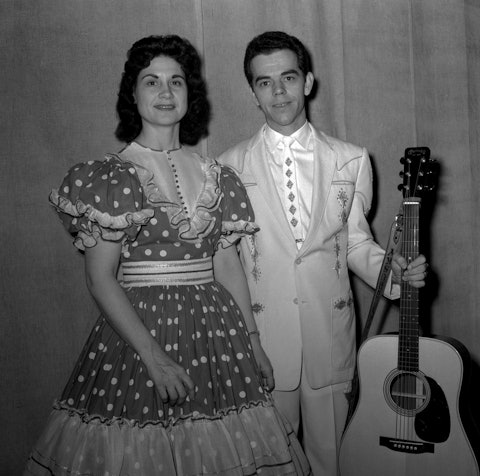
Kitty Wells and Roy Drusky backstage at the Ryman Auditorium during a broadcast of the Grand Ole Opry.
-
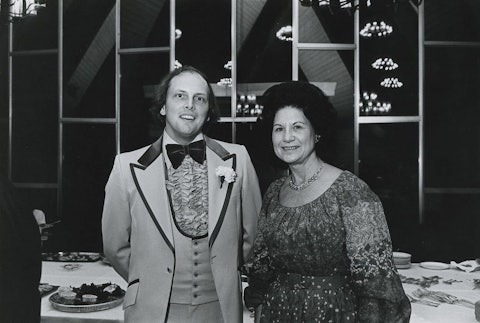
Kitty Wells and Country Music Foundation historian and Grand Ole Opry member Doug Green at a grand opening celebration for an expansion of the Country Music Hall of Fame and Museum, then located on Music Row, 1977.
-
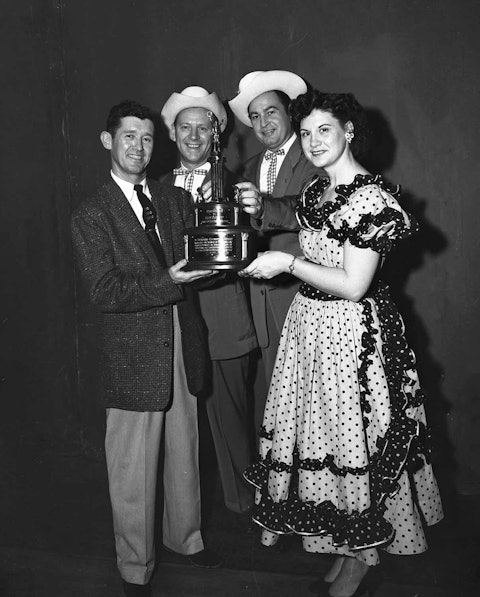
From left: Roy Acuff, Johnnie Wright and Jack Anglin of the duo Johnnie & Jack, and Kitty Wells, 1955. Photo by Elmer Williams.
-
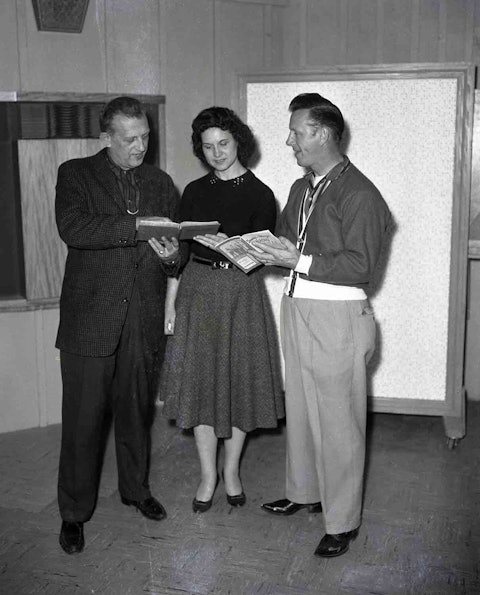
From left: Owen Bradley, Kitty Wells, and Johnnie Wright at Bradley Studio. Photo by Elmer Williams.
-
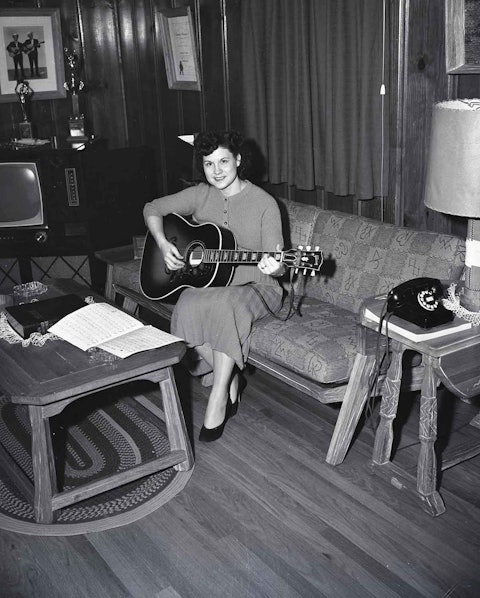
Kitty Wells at home, 1955. Photo by Elmer Williams.
-
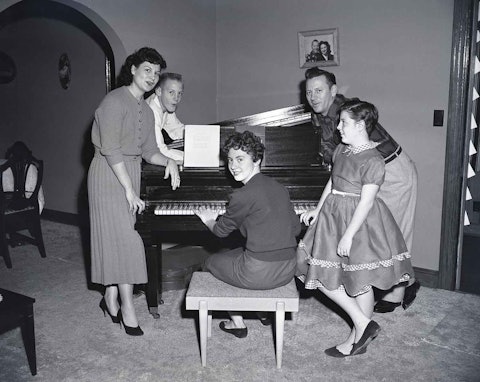
Kitty Wells and family at home, 1955. From left: Kitty Wells, Bobby Wright, Ruby Wright, Johnnie Wright, and Carol Sue Wright. Photo by Elmer Williams.
-
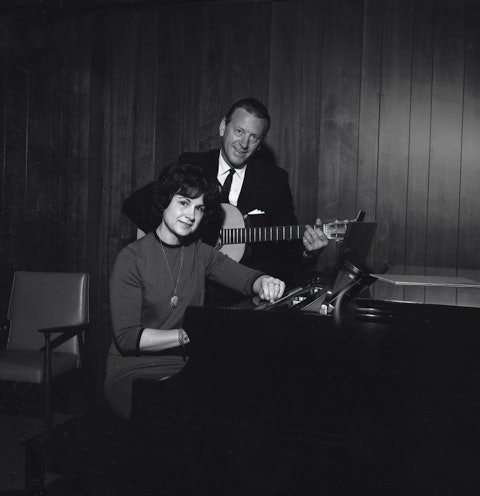
Kitty Wells and Johnnie Wright. 1966. Photo by Walden S. Fabry Studios.
-
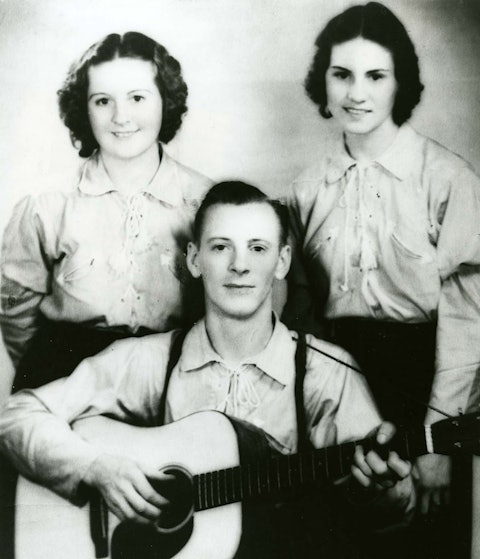
Black-and-white publicity photo of Johnnie Wright and the Harmony Girls, 1936. From left: Louise Wright, Johnnie’s sister; Kitty Wells, then known as Muriel Deason; and Johnnie Wright..
-
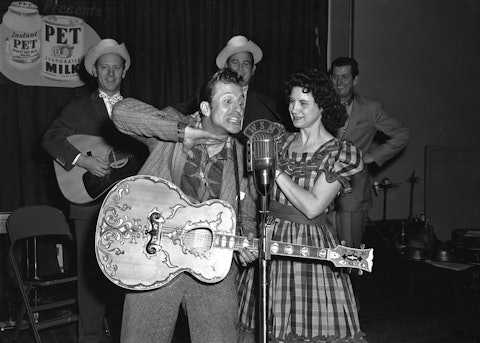
Kitty Wells and Ferlin Husky performing at WSM Studio C. Johnnie Wright and Jack Anglin of the duo Johnnie & Jack, as well as an unidentified man, are in the background.
-
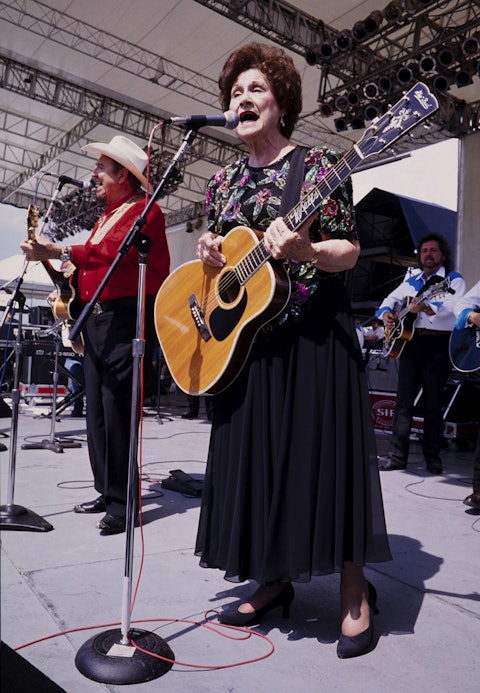
Kitty Wells and Hank Thompson performing at Fan Fair, 1997. Photo by Raeanne Rubenstein.
Breaking Barriers
As the top female country star of her generation, Wells accumulated thirty-five Billboard Top Ten records and charted eighty-one singles. She also starred in her own syndicated TV show in 1968.
Wells’s three children with Wright—daughters Ruby and Carol Sue and son Bobby—all became part of the Kitty Wells-Johnny Wright Family Show, which continued to tour through 2000, when Wells and Wright announced their retirement and gave their final performance, on New Year’s Eve. Wright died on September 27, 2011.
Wells was elected to the Country Music Hall of Fame in 1976 and was nominated for a 1989 Grammy Award for her “Honky-Tonk Angels Medley” with k. d. lang, Brenda Lee, and Loretta Lynn. In 1991, Wells received a Grammy Lifetime Achievement Award, along with Bob Dylan, Marian Anderson, and John Lennon. She was the first female country singer to receive the award and only the third country performer overall, following Roy Acuff and Hank Williams.
Ultimately, Wells’s great achievement was disproving the accepted country music wisdom of her time, which warned that women don’t sell records and can’t headline shows. Her success led record companies to open their doors to other female artists and to experiment with new themes and images for women, thereby changing country music forever.
—Mary A. Bufwack
Adapted from the Country Music Hall of Fame® and Museum’s Encyclopedia of Country Music, published by Oxford University Press



